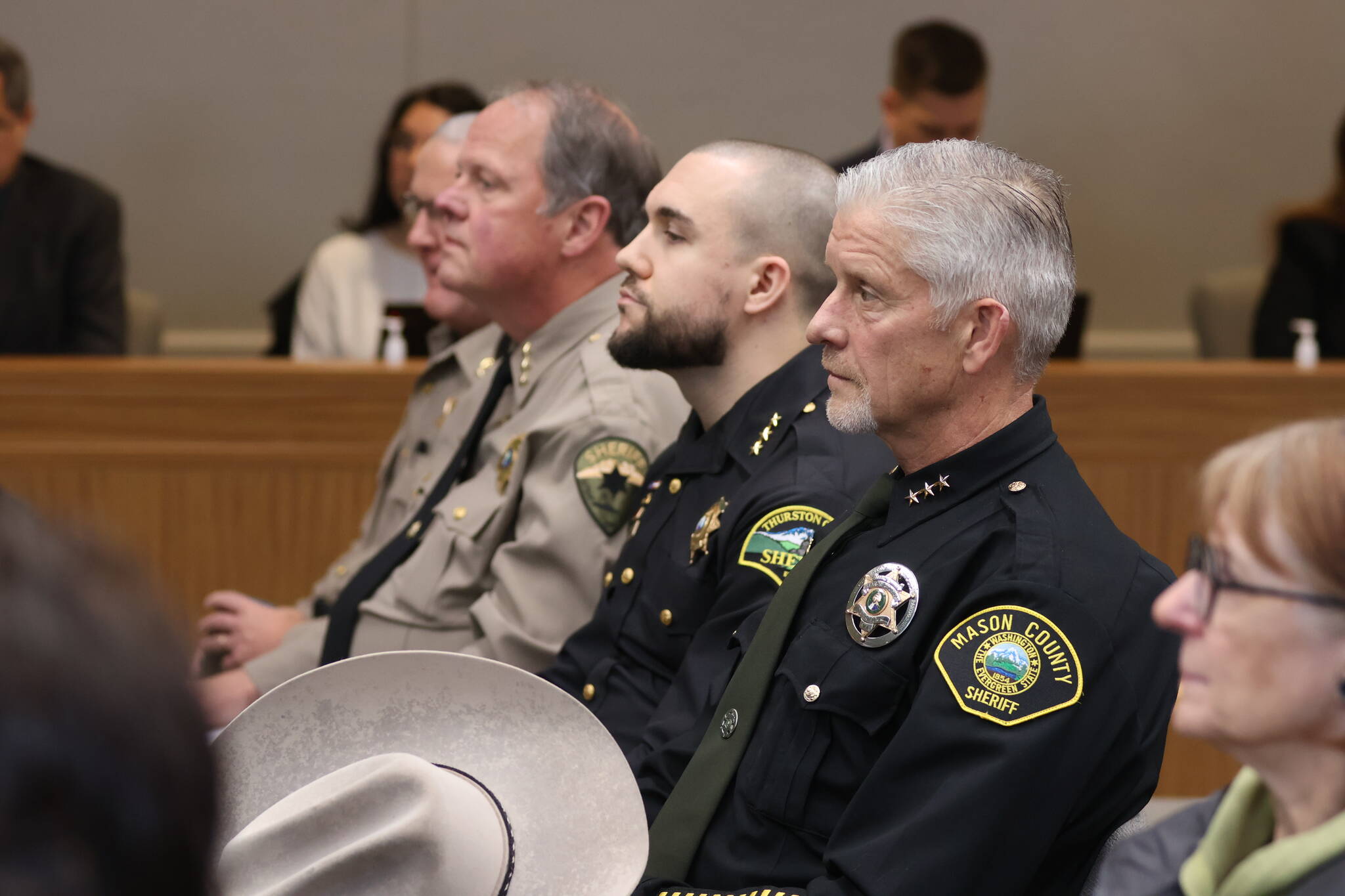An initiative in the state legislature updating the criteria under which law enforcement personnel may initiate a vehicular pursuit had a public hearing at the capitol on Wednesday morning before state senators and representatives.
A crowd filled the hearing room, including uniformed sheriffs and police chiefs from half a dozen departments.
The initiative, 2113, is largely the same as an amendment made last year, save that would allow officers to being in a pursuit if a suspect poses a threat to others, rather than a serious risk of harm.
“This is the best single something we can do,” said Rep. Jim Walsh, R-Aberdeen, testifying in a panel about the initiative. “It leaves in place the standards for training, for supervision for police pursuits, and changes only the standard of discretion of an officer to chase a criminal or a criminal suspect.”
The initiative follows a 2021 bill, HB1054, which drastically changed the criteria under which law enforcement officers were allowed to initiate a vehicular pursuit, which included violent offenses, sex offenses, escape offenses, or reasonable suspicion of DUI, according to a presentation by legislative staff. A 2023 bill lowered the evidentiary threshold for initiating pursuits, while clarifying a number of other points around pursuits, such as training requirements, communications protocols and exceptions.
The new initiative would ease the threshold further, but instead of a list of specific crimes under which an officer could initiate a pursuit, the criteria is a reasonable suspicion that a suspect has broken the law and poses a threat.
“It will give (law enforcement officers) the ability to exercise their training and judgement more effectively,” Walsh said. “It’s a good thing and it’ll make the quality of life for the people of Washington better.”
Other witnesses for both sides of the bill, opposing the easing of the criteria and supporting the ability of officers to engage in pursuit, spoke during the hearing.
James McMahan, policy director for the Washington Association of Sheriffs and Police Chiefs, said the association is in favor of easing the restrictions, while voicing the hope that less pursuits would be needed.
“We support this initiative and ask the legislator to give us the tools to reduce the need for vehicular pursuit in the first place,” McMahan testified.
Others took a more critical stance, such as Josh Parker, senior counsel for the Policing Project at the NYU School of Law, who testified about the dangers of vehicular pursuits, including the thousands of dead, including hundreds of bystanders, from pursuits in recent years. Parker stated that more than 52,000 people have been injured in pursuits since just 2017, while only one out of 15 of the suspects of police pursuits have been involved in violent crimes.
“These result in officer deaths and injuries at alarming rates,” Parker said. “Police chases kill four times as many black people per capita as white people.”
James Schrimpsher, police chief for Algona and vice president of Washington’s chapter of the Fraternal Order of Police, said that it was good to open up the criteria, and that clarity of policy, which sets only the ground floor for agencies across the state, is helpful.
“The initiative also has a balancing test. But it opens up pursuits to reasonable suspicion of violation of the law,” Schrimpsher said. “Many departments, mine included, have long recognized the dangers of vehicle pursuits. Law enforcement can adapt our approach provided we have clarity of policy.”
Amber Goldade, a Tacoma resident whose daughter was killed alongside another girl by a suspect driving a stolen vehicle several years ago, passionately testified in support of the initiative, saying that her daughter and friend would not have died if the regulations around vehicular pursuits had been different.
Sonia Joseph, member of the Washington Coalition for Police Accountability, and mother to a son killed during a traffic stop, said the WCPA opposes the initiative.
“When the police prioritize public safety, I can stop worrying about my second child being the victim of police violence,” Joseph said. “WCPA opposes initiative 2113 because it seeks to drag back state law. Unrestricted police pursuits just don’t make sense.”
The initiative will go to its respective committees in the House and Senate on Friday at 9 a.m.
Contact Senior Reporter Michael S. Lockett at 757-621-1197 or mlockett@thedailyworld.com.



